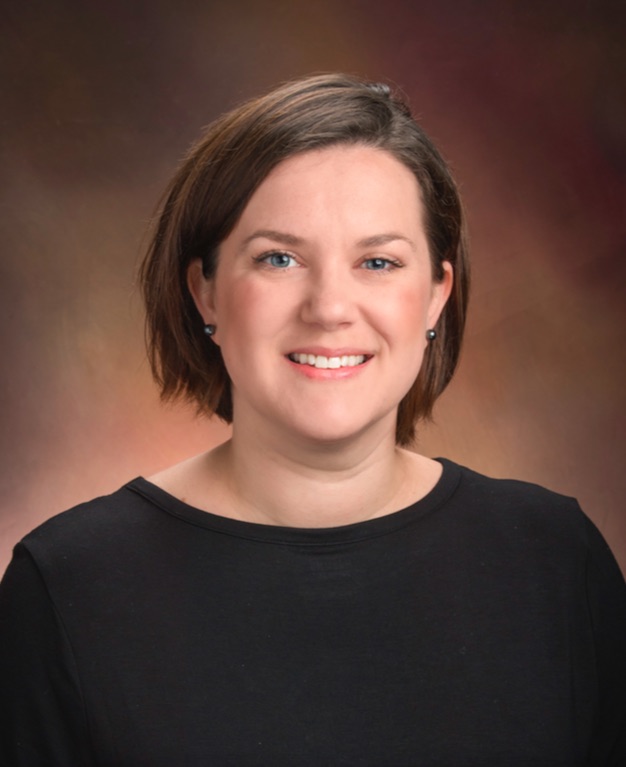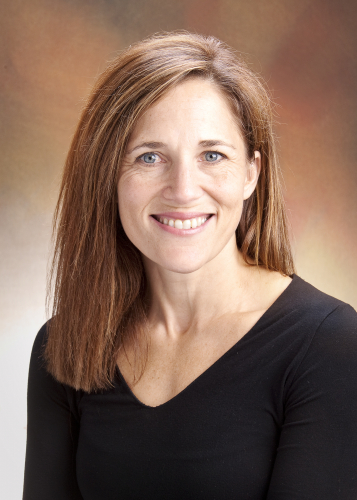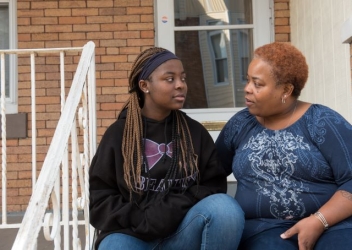Research In Action
Research In Action
Breadcrumb

Moderator’s Note: To celebrate the 10th anniversary of the Center for Violence Prevention (CVP) at Children’s Hospital of Philadelphia (CHOP), we are highlighting CVP’s pillars and programs (including the people leading these programs) that help to reduce exposure to and impact of violence among youth and their families. We’ve recently highlighted the Aggression and Bullying Prevention Pillar and the Community Violence and Trauma Support Pillar. Next up, we take a look at three pillars: Intimate Partner Violence Prevention, Suicide Prevention, and Gun Safety.
Intimate Partner Violence (IPV) Prevention: More than 15.5 million children in the U.S. are exposed to IPV annually, with established adverse effects related to poor health, substance abuse, anxiety, depression and post-traumatic stress symptoms. The STOP IPV Program at CHOP is conducted in partnership with IPV agencies Lutheran Settlement House in Philadelphia and Laurel House in Montgomery County to help minimize the adverse effects of IPV exposure. The program promotes universal assessment and resource allocation by healthcare providers for IPV and teen dating violence (TDV) and includes referrals to on-site specialists who can provide support and referrals to services.
CVP has also embarked on an innovative project in collaboration with Lutheran Settlement House aimed at addressing the pressing issue of TDV in Philadelphia. STAR (Students Talking About Relationships) is a culturally adapted evidence-based TDV prevention program that supports youth and builds community capacity.
Suicide Prevention: Suicide is consistently among the three leading causes of death among adolescents and young adults ages 10 to 24 years in the United States. CVP aims to strengthen CHOP’s youth suicide prevention efforts and increase patients’ access to mental health services by identifying and addressing care coordination needs for mental health referrals. Since 2007, CHOP has utilized the Behavioral Health Screen (BHS-ED) in the emergency department to assess mental health conditions, including suicide risk, in teenagers who visit the ED for any reason. The ED can then offer resources and consultation with Social Work and/or Psychiatry and relay important findings to teenagers’ primary care providers.
CVP has also contributed a confidential data repository of more than 35,000 BHS-ED surveys to Arcus at CHOP to encourage researchers from the hospital and other institutions to perform critical research on mental health and suicide in teens.
Gun Safety Program: Approximately 4.6 million children and teens live in a home with a loaded, unlocked gun, and research has shown that three out of four kids ages 5 to 14 know where guns are kept in the home. To ensure optimal safety for children in homes with guns, CVP experts have initiated a program in CHOP’s Emergency Department (ED), three primary care centers and one subspeciality practice that allows healthcare providers to have nonjudgmental conversations with families about guns in the home and, if appropriate, offer educational resources and gun safety devices at no cost.
Collaboration with CHOP’s Office of Community Impact, Security and Safety Center have allowed gun safety education and locking devices to reach the broader community. Over the next two years, thanks to a Chair’s Initiative grant from the Department of Pediatrics, the Gun Safety Program team will test and enhance these pilot initiatives in order to develop an enterprise-wide firearm safety program. This program will be cohesive and standardized, while adaptable to the wide range of healthcare settings across the enterprise.
Meet the Intimate Partner Violence Prevention, Suicide Prevention, and Gun Safety Pillar Leaders
Ashlee Murray, MD, MPH, Jeremy Esposito, MD, MSEd and Dorothy Novick, MD lead this work. We recently caught up with them to learn about their careers in violence prevention research.
What is your title?
Dr. Murray: Director of Advocacy and Health Policy for the Division of Emergency Medicine; Associate Professor of Clinical Pediatrics; Pediatric Emergency Medicine Attending Physician; Practice-based Scholar, Center for Violence Prevention
Dr. Esposito: Pediatric Emergency Medicine Physician; Director of ED Behavioral Health Quality Improvement Committee; Practice-based Scholar, Center for Violence Prevention; Assistant Professor of Pediatrics and Psychiatry, Perelman School of Medicine
Dr. Novick: Pediatrician, South Philadelphia Care Network; Practice-based Scholar, Center for Violence Prevention
How long have you worked at CHOP?
Dr. Murray: 15 years
Dr. Esposito: 14 years
Dr. Novick: 28 years
What is your favorite project on which you have worked and why?

Dr. Murray: Working with Jessica Palardy from Lutheran Settlement House and Melissa Dichter from Temple University on our RWJ Interdisciplinary Research Leaders project.

Dr. Esposito: One of my favorite projects is a Department of Pediatrics Chair’s Initiative called “Communicating and Connecting Mental Health Needs of Patients in Primary Care.” It was inspiring to work with a multidisciplinary team devoted to developing and piloting processes to connect patients with mental health concerns to services, including the introduction of Social Work Care Coordination. We are excited to hear that the program of Social Work Care Coordination will be expanded over time.

Dr. Novick: There’s so much I find rewarding about the project I’m currently leading to integrate safe firearm storage into the care we deliver at CHOP. Mostly, it keeps kids safer! Also, the degree of enthusiasm, collaboration and consensus-building across the enterprise has been truly incredible. I am beyond grateful, since this has allowed us to make significant progress in just a few short years.
What values drive your work?
Dr. Murray: Compassion is crucial in my various professional roles at CHOP. Specifically, as a pediatric emergency medicine physician, compassion is vital for providing patient-centered care. Compassion enables me to provide emotional support during difficult times, fostering resilience and helping families cope with the challenges they face. As the Director of the Domestic Violence Program, compassion is also paramount in dealing with children who may be victims of abuse. My ability to approach their situations with sensitivity and empathy is crucial for establishing a safe and supportive environment.
Dr. Esposito: I connect with the compassion value most, however all are important. In the emergency department, many patients and families need someone to listen and show compassion during their time of need. It can go a long way.
Dr. Novick: Excellence. I’m a firm believer that if we’re going to do something—especially something that involves children—it's incredibly important that we do it right.
What do you like to do outside of work?
Dr. Murray: I have four kids (9, 7, 2, 2) who keep me pretty busy. I love traveling! I love to exercise— specifically lifting weights—and spend a lot of time at the gym. I like to cook and consider myself a foodie. I also love Broadway and hit up the Broadway shows when they come through Philly.
Dr. Esposito: I’ve been getting back into oil painting, and my colleagues have been encouraging me to keep it up. I also love traveling to new places with my husband and our close friends.
Dr. Novick: Anything that involves being on top of a mountain! I also love great food and going to sporting events with my family.
What is your “must-visit” spot in Philadelphia?
Dr. Murray: Rittenhouse Square—I lived there for 15 years during my training. I got engaged in Rittenhouse and had my first child there, so it brings back many good memories. I live in South Jersey now, and my family tries to visit Rittenhouse as much as we can.
Dr. Esposito: Even though I’ve lived here for a while, it’s hard to pick a “must-visit” spot. My favorite places involve food, and one place I love to visit is Villa Di Roma in the Italian Market. It reminds me of my great aunt’s Italian restaurant where I grew up.
Dr. Novick: The rooftop of the Bok Building—with Citizens Bank Park and Lincoln Financial Field as close seconds.



